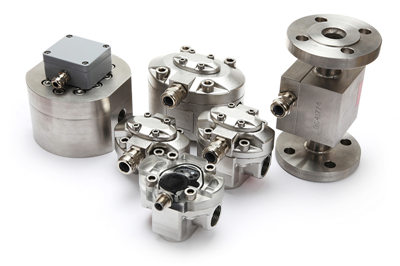Home > News > Titan Enterprises: Metering Petrochemical Additive Injection Fluids
Titan Enterprises: Metering Petrochemical Additive Injection Fluids
Titan Enterprises has published an online article** that reviews the evolving role of different flow meter technologies in measuring injection additives in petrochemical processes.
For the successful transportation and refining of crude oils a whole raft of additives are required. These vary from simple surfactants through to complex blended scale and corrosion inhibitors. These chemicals are injected in small quantities at high pressure and are critical to the whole refining process. Consequently, careful monitoring of their addition to any process is essential, and often this is best done using petrochemical flow meters. Petrochemical additive injection fluids vary in both viscosity and density, and any petrochemical flow meter installed into a plant should be able to cope with a wide range of physical and chemical properties.
For the successful transportation and refining of crude oils a whole raft of additives are required. These vary from simple surfactants through to complex blended scale and corrosion inhibitors. These chemicals are injected in small quantities at high pressure and are critical to the whole refining process. Consequently, careful monitoring of their addition to any process is essential, and often this is best done using petrochemical flow meters. Petrochemical additive injection fluids vary in both viscosity and density, and any petrochemical flow meter installed into a plant should be able to cope with a wide range of physical and chemical properties.

The article discusses how positive displacement, rotary piston, spur and oval gear, thermal, Coriolis and ultrasonic flowmeter technologies have been used for petrochemical applications. The author concludes that each one of above petrochemical flow meter technologies discussed has its own strengths and weaknesses (which are detailed in the article) and a choice will largely depend on financial constraints and personal experience.
To download a copy of the article please visit http://www.flowmeters.co.uk/flowmeters-newsblog/petrochemical-flow-meters-metering-petrochemical-additive-injection-fluids/** or contact Titan Enterprises on +44-1935-812790 / sales@flowmeters.co.uk.
With over 40 years’ experience in flowmeter innovation and manufacture, Titan Enterprises philosophy of "pushing the envelope by trying to do things a little different and better" has resulted in sales of over 250,000 products into 40 countries worldwide and a repeat purchase rate of 95%. Today Titan supplies innovative flow measurement solutions to a broad range of market sectors, including medical, chemical, petrochemical, food and drink, laboratory and pharmaceutical. All flow meters produced by Titan are designed and manufactured to ISO9001 and calibrated to an uncertainty of ±0.25%.
---------------------
Worldwide HQ
Titan Enterprises Ltd.
Coldharbour Business Park
Sherborne
Titan Enterprises Ltd.
Coldharbour Business Park
Sherborne
Related News
- How to Achieve Breakthroughs in Immunology and Cancer Therapy Research Using PD- 12/5/2025
- Is There an Inevitable Link Between PD-1 Antibody Half-Life and Clinical Efficac 12/4/2025
- Biotech Fluidics: Dual Stage Degasser Vacuum Pump 12/4/2025
- Can Lactylation Antibodies Reveal New Mechanisms of Tumor Resistance to Ferropto 12/3/2025
- The Application and Validation of Serine/Threonine Phosphorylation Antibodies in 12/2/2025
- Biomoneta Becomes the First Indian Health-Tech Firms to Earn US-FDA Class II Cle 12/2/2025
- Thrombin Antibodies: How Does Aptamer Technology Revolutionize Anticoagulation T 12/1/2025
- The Key Role and Application Advances of IFN-γ Detection in CAR-T Cell Therapy D 11/30/2025
- FMC63 scFv: The Core Component of CD19-Targeted CAR-T Therapy and the Applicatio 11/29/2025
- Olympus Accelerates Local Production of the EVIS X1™ Endoscopy System in C 11/28/2025


